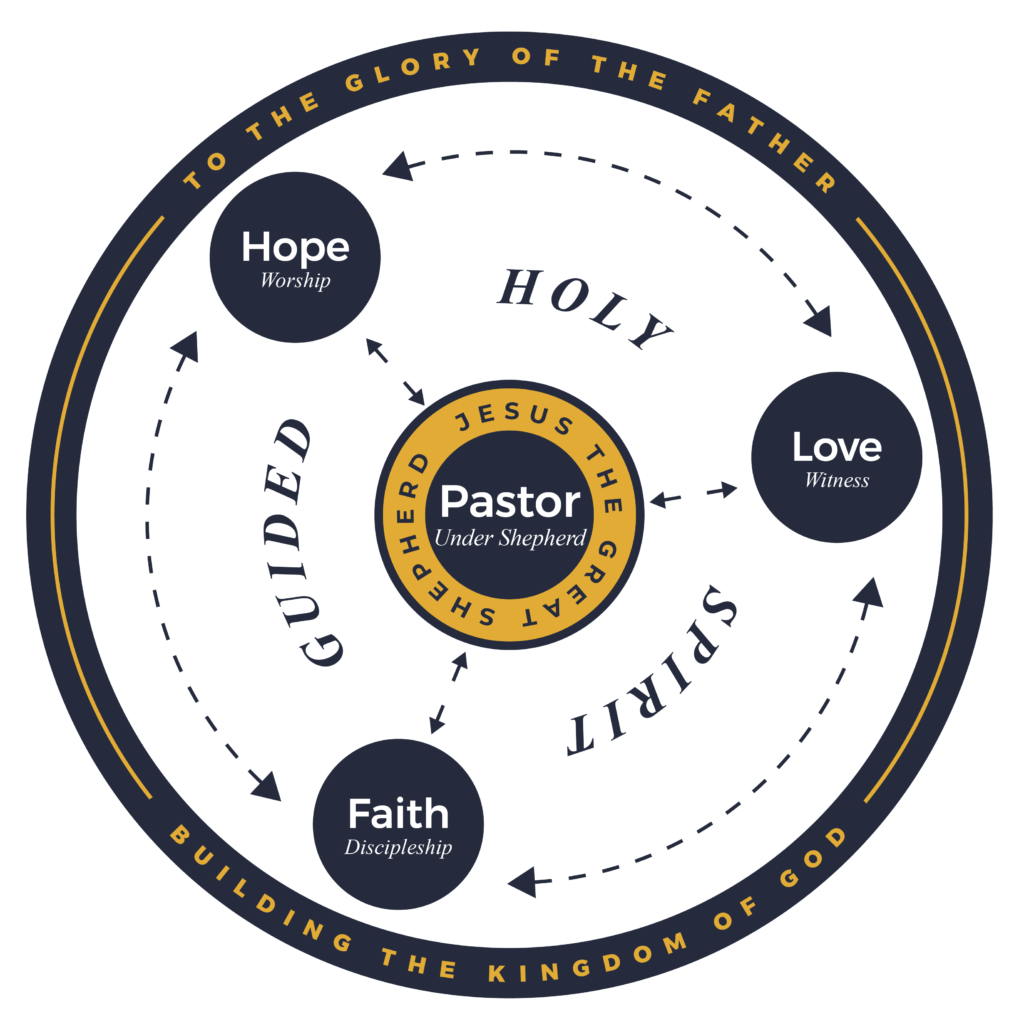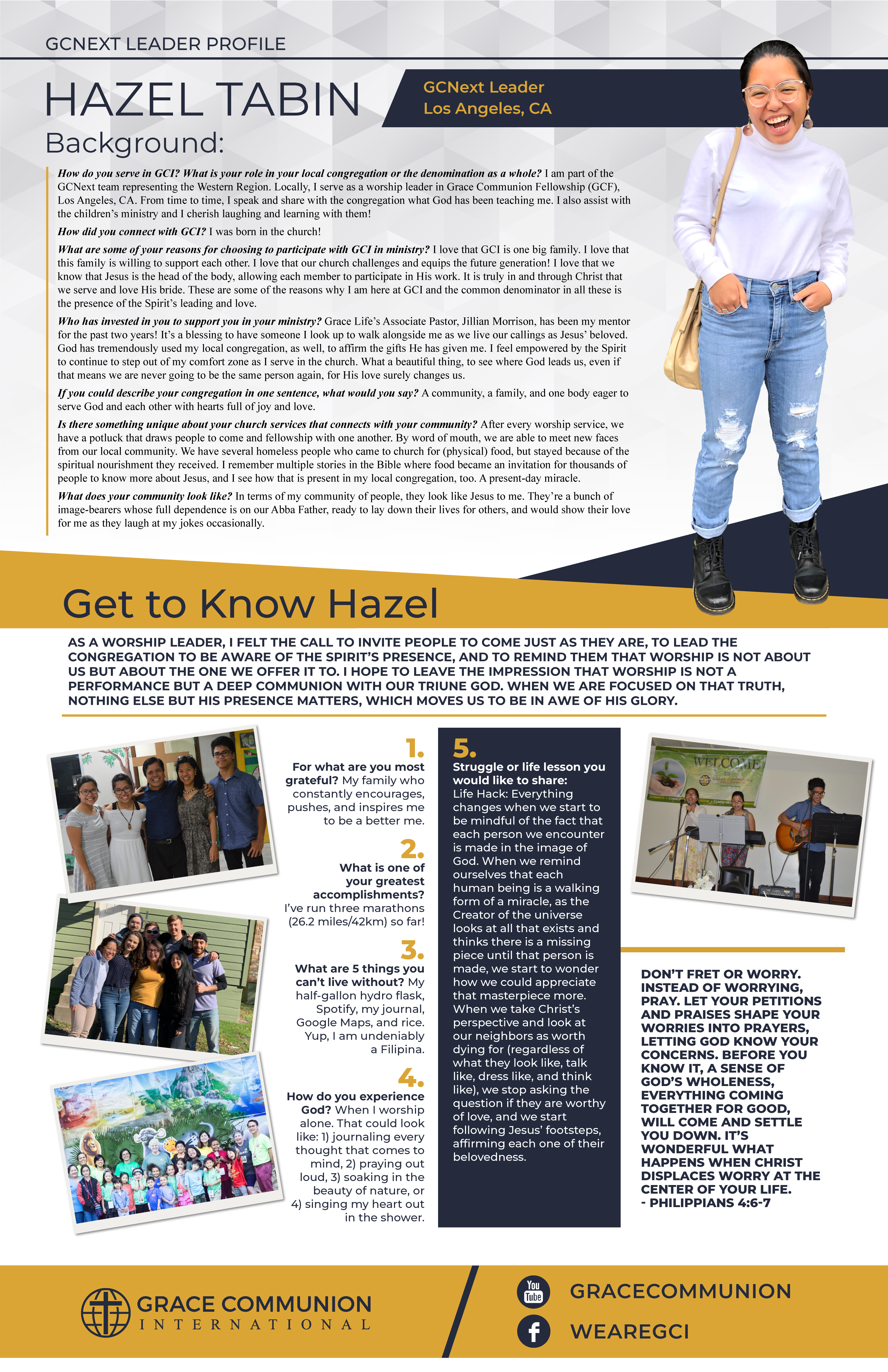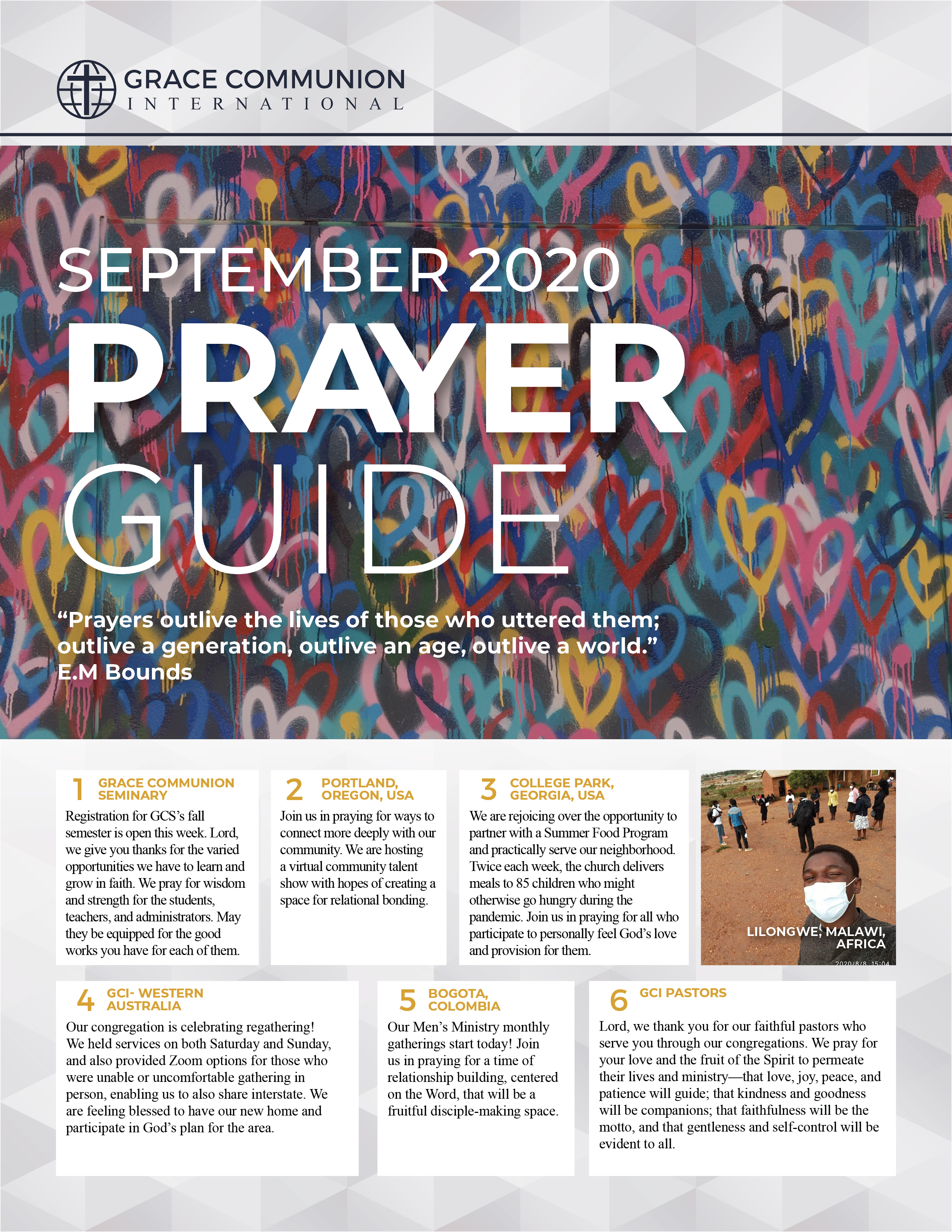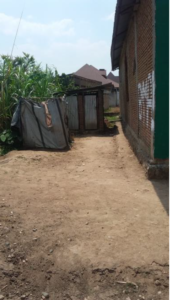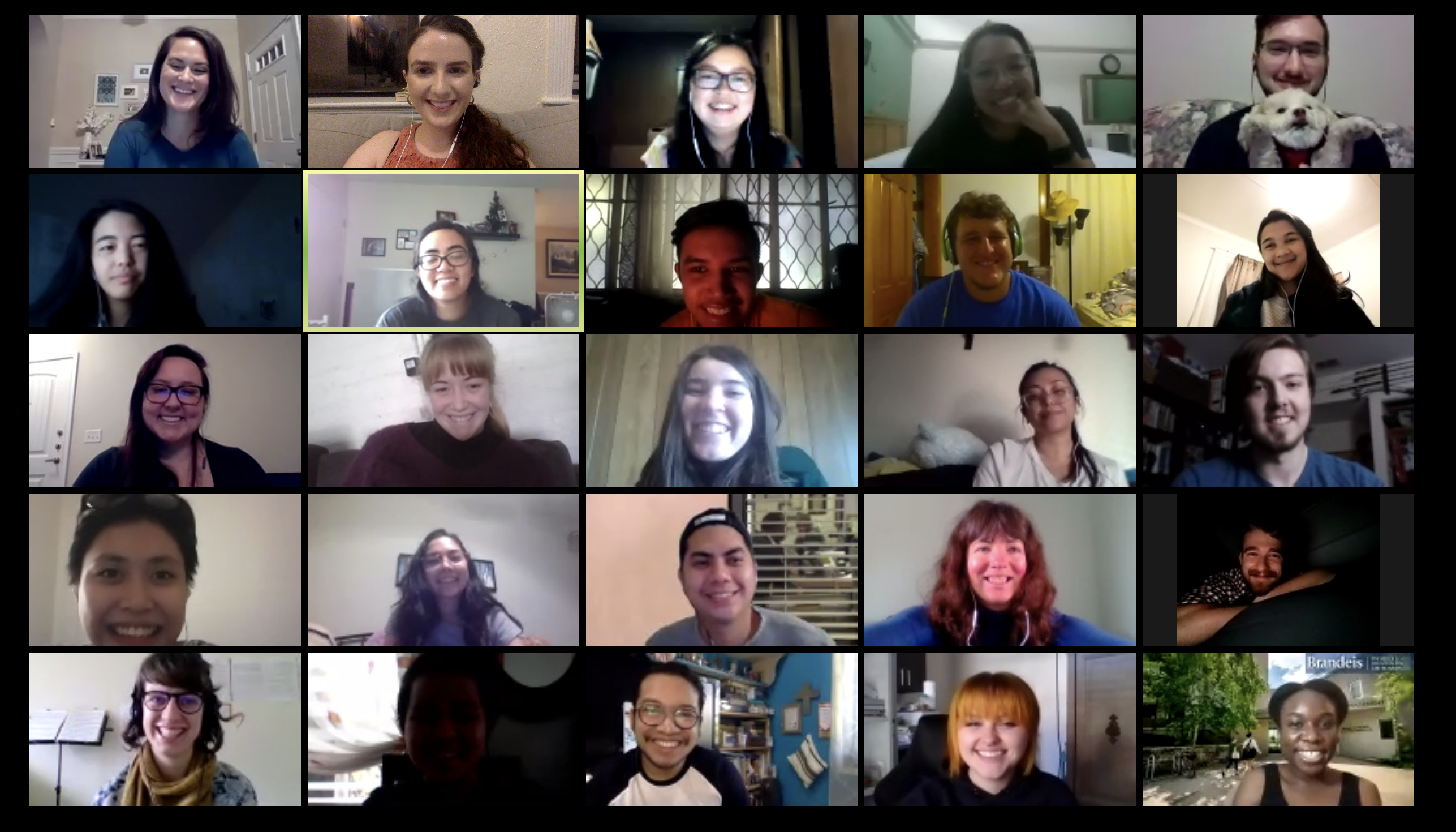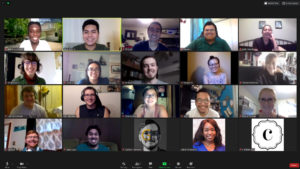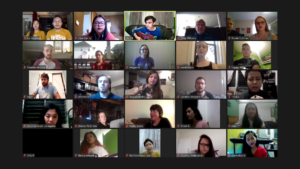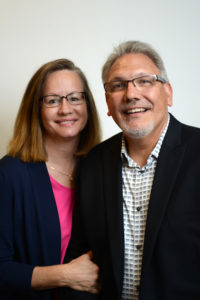
Dear GCI Family and Friends,
The interracial and international makeup of Grace Communion International is a blessing and a strength of our fellowship. As I hear and read about the controversies between the “black church” and the “white church” in America, I am pleased that we have ongoing dialogue internally as a GCI family that cares about one another.
As President, I must continually pay attention to ways that the church is being challenged and then prayerfully consider how we move forward. Thankfully, I have a wonderful team of people around me who help me with the multitude of issues. Just as I ask our pastors to be “Team-Based, Pastor-Led,” I seek to be “Team-Based, President-Led.”
I recently asked one of my team members, Dr. Gary Deddo, to write some helpful thoughts on the topic of racism as we see it addressed in Scripture. See his thoughts below.
What does biblical revelation contribute to the concern regarding the evil of racism?
What biblical revelation offers out of its incarnational and trinitarian center can be summed up in four points.
- Biblical revelation sheds strong light on this form (and all forms) of evil. It does so by locating all sin—including racism—in the most comprehensive context there is. That context, that reality, is the history of humanity’s need for our Triune God’s redemption through Jesus Christ and by the Holy Spirit. That history reaches back to the beginning of created time and out to the future of eternity. In contemporary terms, the whole of biblical revelation provides us a complete story of humanity’s individual and collective brokenness—from its founding to its redeemed culmination. It is a history of all peoples, of all the families of the nations. By God’s grace, we have been given a metanarrative that includes the histories of all particular individuals, peoples, and nations. It is a story of our Creator and Redeemer’s redemption and, as such, is a story of true hope.
- Biblical revelation centered in Christ tells us what is wrong with our world and so with racism. It does not offer a superficial, biased, or naive view of any evil, including racism. It does not merely expose the symptoms of evil, but the root, the source of any evil including that of racism. Evil is rooted in our distrust and alienation from God. After being tempted by the evil one, humanity rejected a personal relationship with God. Evil is rooted in the lie that we don’t need God and we don’t need to be in relationship with God. The true seriousness of any and every evil is uncovered in biblical revelation. It identifies the root of all sin operating in this “present evil age.” It tells us that our real enemy is not other persons (“flesh and blood”), but the powers of evil that tempt us all and take advantage of our weaknesses. It tells us that every human being needs to be freed by the grace of our Triune God from the power of evil at the deepest level of who we have become.
- Biblical revelation, which has its center in Jesus Christ, makes known the final end goal of our Triune God’s own eradication of all evil, including racism. It ends upon Jesus’ return as Lord of all. It does not stop short by pointing us to false hopes, misguided compromises, partial results, or hopelessness. Rather, it supports the true hope for all—ultimate redemption and reconciliation between all. Going to the root, Jesus has—through his shed blood on the cross and resurrection from the dead—achieved victory over the source of all evil. At his return, he will eradicate sin as everything is placed under his total rule and reign. Nothing less can bring to a complete end all evil, including the sin of racism.
- Biblical revelation informs and forms those who are members incorporated into the Body of Christ as to how to participate in our Triune God’s own work of reconciliation and redemption in this present evil age—even as we wait in hope for our ultimate reconciliation, redemption, and the renewal of all things in heaven and earth upon Jesus’ personal and bodily return. We have been given a mission and message of reconciliation to actively share (2 Cor. 5).
My synopsis from Dr. Deddo’s helpful points are:
- I am thrilled that our shared theological foundation—in what is called “Incarnational Trinitarian Theology” (ITT)—is for all people groups, for all ages, in all cultures. We rest and hope in the God revealed through Jesus. He is our solid rock!
- Racism is evil. Treating any people group with prejudice, discrimination, and judging them as inferior is against the nature and intent of the Triune God. We are not to view any person from a “worldly view.” Rather, we are to see all people under the spilled blood of Jesus (2 Corinthians 5:16). Jesus died for people of all races; he values people of all races, and no race is to look down on or feel superior to any other race; the same is true for all ethnicities. In Christ, there is no slave, no barbarian, no Scythian, no Gentile, and no Jew. We are all equal in him.
- Racism will not fully be eradicated until Jesus returns and makes all things new. However, as the church of Jesus Christ we participate with him by the power of the Spirit to demonstrate love and respect to all peoples, and to be peacemakers advocating for equal treatment for all in the systems around us. As a church, we are called to be a light on the hill.
As part of our effort toward greater corporate health, we are forming an Advisory Council of minority leaders who will work with North American Superintendent Mike Rasmussen to inform him and the other Regional Directors as to ways we can more faithfully demonstrate our true unity in Jesus Christ.
As we move forward in our journey toward healthy church, we must make certain that our interracial relationships are healthy. Black lives and Black voices matter in GCI because our denominational story is incomplete without them. Hispanic lives and voices matter. All minority voices must continue to have a greater contribution within our denominational journey with Jesus. We will have more to share once the council is formed.
Please pray for the Lord’s leading in this new initiative and that wonderful fruit will be produced.
In Christ,
Greg Williams




